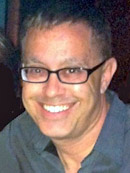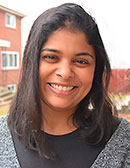
THE BRIDGE TO COLLEGE
Parents Say the Darnedest Things

After working with more than 1,000 students and writing over 100 published articles, you’d think that I might run out of things to say. Nope! There is so much I want to tell everyone just so the playing field is level and fair. However, in the words of Clint Eastwood’s Harry Callahan in the movie “Magnum Force”: a man’s got to know his limitations.
So, this month, I’m offering you the words of other people, parents who have been through the college admissions process already.
As I have said again and again and again (and again), although this is an education industry, it is still an industry. This is business, not benevolence. Everything you hear from a college is for their best interest, not yours. The colleges do not love your child. They don’t even know you.
Most of what you hear from a college is intended to influence you, to their advantage. Do not buy into the marketing doublespeak. As one parent told us:
“One of the biggest things I realized was that most of what I thought we knew was wrong. Things like early decision, how applying early to a non-binding school that you have a good chance of getting into is a much smarter way to go, and what you thought were the right schools may not actually be a good fit for your child.”
Let’s talk about those “right schools.” The greatest thing about American higher education is the variety of our universities. They do not teach in the same way. One box does not fit all and rankings are, well, infuriating. There are easily (easily!) over 100 schools in the U.S. that are just as good as Stanford or Harvard or MIT, for the right student. But you need to find them, and the standard methods – rankings, reputation, and word of mouth – will not provide the useful information you should use in making this life-changing decision. As one parent wrote:
“I did not realize how much effort needs to go into researching schools and making sure that every school you apply to is a good fit.”
By the way, let’s all join in the Chant of Truth: “TEST SCORES DO NOT WIN.” Obviously, get the highest grades and scores you can, but America’s holistic admissions methods (even used by public schools for their own purposes) are not purely based upon numbers. As we say all the time, “admissions is not linear.” Applications are sales presentations, not award-winning essays. This puzzle has many, many pieces:
“My view has changed by realizing that the admissions process is not as straightforward as one might think. There are a lot of different factors that go into the process.”
Everyone over-focuses and over-stresses about The Essay (called a “personal statement”). For our best schools, there are several supplemental essays, too. Yet parents seem only to focus on the personal statement, which is not the single most important differentiator. Nor is that essay the most challenging. Instead, “why do you want to go to our school” is the one essay that trips students. In fact, for every student we have ever served, we have rejected at least one “why” essay. It would be irresponsible of us to edit something that we know will hurt a client’s chances of admission.
“What did I learn? University applications are way more competitive than I would've ever thought, the Common Application isn't as horrifying as I imagined, and the ‘why’ essays are the hardest to write.”
Although the application season is hard on students, it is perhaps harder on parents, who feel restrained and even paralyzed watching the calendar – and the future – roll away from them. As educational consultants, we do a lot of unseen family counseling. The best work comes when everyone feels comfortable, supportive, and even happy.
“Parents need to be very patient yet supportive. Keep being there for each other.”
Finally, don’t think that your best work will come easily. Admissions applications require skills that you have not learned before. The mantra should be “better, not faster.” Give everything more than enough time to do your best work. As one parent emphasized:
“Start early, seriously.”
Robert LeVine is the founder and CEO of University Consultants of America, an independent educational consultancy assisting students around the world with applications to colleges, universities and graduate schools. For more information, call University Consultants of America, Inc. at 1-800-465-5890 or visit www.universitycoa.com
FAMILY MATTERS
Why 2020 will be the year to Let It Go

The other day, I read something that changed the way I think about change. On Facebook, of course. It was a post by my friend Jane Feaster: “Don’t let traditions get in the way of making new memories.”
Feaster said she was speaking generally when she wrote that, but one specific example that prompted her was her annual tradition of baking huge batches of Christmas cookies. Now that she works practically full time, it was impossible to maintain the ritual, so she simply decided to let it go. And the minute she made that decision, she felt a huge weight roll off her shoulders.
I love Jane’s cookies, but I completely understand where she’s coming from. I’ve inherited some traditions, acquired others through marriage, and even cooked up a few that have since taken on a life of their own and become a nuisance now that we are all so much busier.
However, it takes courage to stop doing something that’s been billed as “tradition.” I’m a slave to nostalgia, one foot firmly planted in “how things used to be,” the other foot wavering, afraid of “how it’s going to be now.” It’s an unhelpful mindset. Just with our family’s annual Christmas gathering in Chicago, any number of changing dynamics affect how things play out: Babies are born; empty-nesters make travel plans; young cousins get matched for residencies out of state; or the Disney+ channel takes “Elf” away (a bitter pill, indeed).
I had to confront change suddenly last summer when a vacation in India took an unexpected turn. My parents were looking forward to having both their daughters and all three grandkids under their roof at the same time. We made plans for many of our usual restaurants, temples, shopping expeditions and visits to relatives. However, everything was derailed when a sudden health issue landed my father in hospital for half the time we were there.
Until then, I had never “adulted” in India. As soon as I set foot in my parents’ hometown, I’d immediately stop making decisions for myself and sit around in happy docility, being fed meals I didn’t have to plan or cook and being taken on outings I didn’t have to arrange. This time, I found myself on the same rung as my parents, helping one care for the other, trying to figure out technologies I didn’t understand and read up on outcomes I didn’t always want to comprehend. It was something they couldn’t protect me from, so for the first time, it was like we were all grownups together. It was hard to witness my father’s frustration at not being in control of his situation, but I tried to explain that one missed year of traditions does not detract from all the memories that came before, and more importantly, new ones to come.
As for me, I made new memories on this trip of taking autos all over town (with kids thrilled by the lack of staid chauffeuring) and late-night gossip with my sister as we devoured biriyani or parathas we’d order nightly from what became our regular spot. I also gained a newfound appreciation for the flexibility and resilience with which my stalwart parents met their altered circumstances. Like many desi parents, they grew up on one continent, raised their kids on another, and now fly to a third to see their grandchildren. Change doesn’t faze them. They are back in action, traveling, hosting and enjoying their family, albeit with an extra level of care and attention.
Tradition can be an act of audacity because, regardless of anyone’s views on religion, fate or science, very little is actually within our control. Change may end some things as we know them, but not necessarily for the worse. This is a valuable lesson at this stage in parenting where my mind keeps up a relentless, panicked countdown towards my older one heading off to college. I missed my babies but adored the toddlers who followed them. The preteens were (and are) fun, and even the much-maligned teenager has turned out to be awesome company, just as my now subtly altered relationship with my parents has led to a new dynamic.
So, as we sail off into a new decade and new adventures, I’m dispensing with the list of diet-exercise-mindfulness resolutions I usually attempt and completely fail at by February. That’s one tradition I can do without. Instead, I’ll nudge myself to let go of the tension of expectations in the hope that the letting go makes room for new memories. Maybe even some unexpectedly awesome ones.
Anu Varma Panchal is a mother of two and owner of www.YourEditingSolutions.com